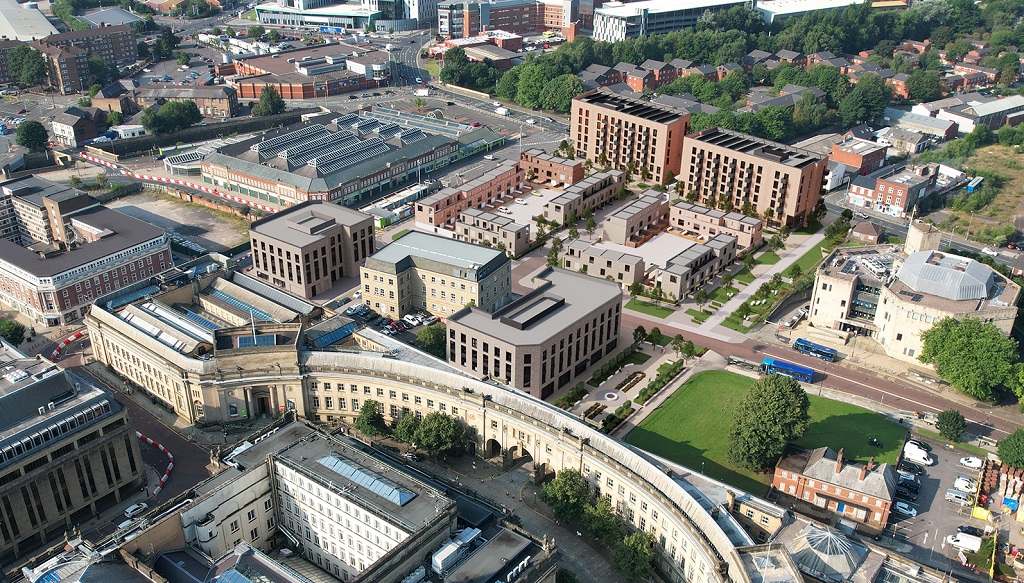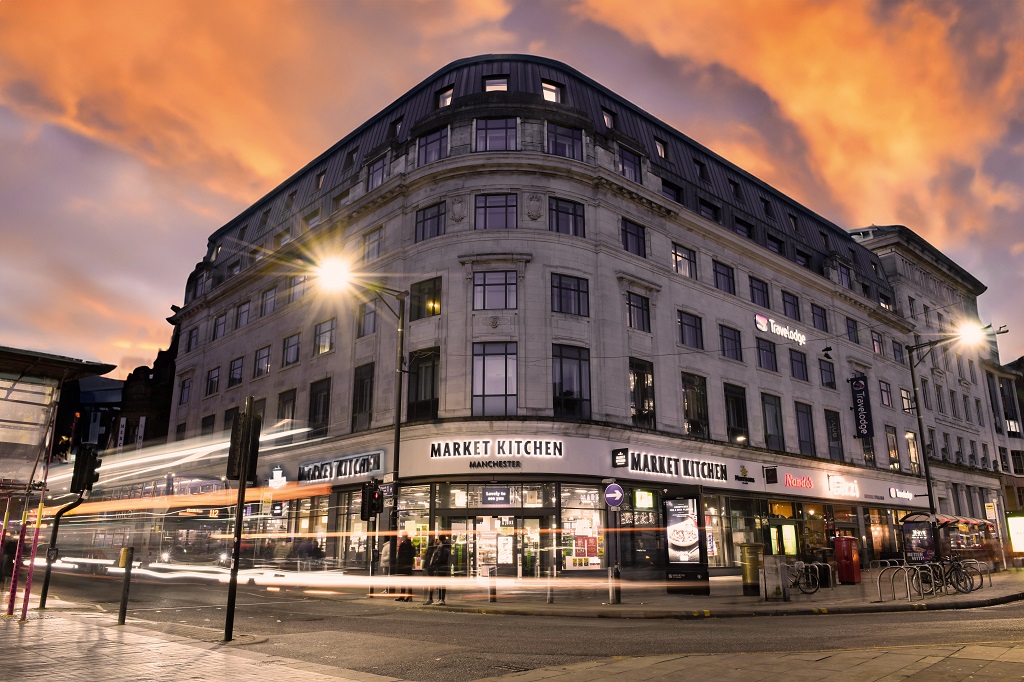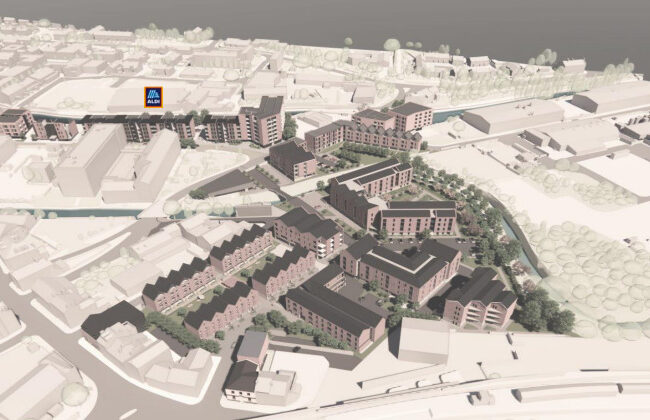Bolton takes half million-pound hit on town centre site
The council has accepted a reduced offer of £385,000 to unlock the second phase of Step Places’ 208-home Moor Lane scheme, £554,000 less than originally agreed.
The reduced offer is a result of “high inflation and supply chain challenges”, which have increased costs and put a strain on the scheme’s viability, the developer said.
Meanwhile, the requirements of the project’s funder Greater Manchester Pension Fund also necessitate a lower land value, according to a report to Bolton Council’s executive cabinet.
In March 2021, Bolton Council agreed to dispose of the 4.5-acre former bus station near Le Mans Crescent for £1.85m to FSG Moor Land Developments, a vehicle whose sole director is Step Places’ Harindar Dhaliwal.
The vehicle has already paid the first £925,000 and work on the first phase of the project, 94 townhouses, is underway and unaffected by the land value regear.
In order to facilitate the second phase, 114 apartments across two blocks, FSG needs to pay for the next tranche of land.
Under the March 2021 agreement, the developer was due to pay the council £927,000 for the second phase land.
However, at a meeting earlier this week, Bolton accepted a significantly reduced offer of £385,000 to unlock phase two.
A spokesperson for Step Places said: “The second phase of the Moor Lane development being bought forward by Step Places providing 114 private rented apartments was agreed in 2020.
“In the years since, high inflation and supply chain challenges have affected the overall cost of the development, pushing build costs by up to 25%. Step Places has worked hard with Bolton Council to bring the project forward at a reduced margin, which other developers may have declined to have followed through.
“We look forwards to delivering this scheme which is a key component of Bolton’s regeneration ambitions for the town centre.”
Bolton chose to accept the reduced offer because “the value to the council in terms of wider economic and social benefits far outweigh the undervalue of the site”, according to the report.
It added that GMPF’s decision to invest in Bolton is “a real vote of confidence” in the town and that not accepting the reduced bid would risk the “failure of a significant and long-held priority for the council” to build homes in the town centre.





For second prize in the council giveaway our bills have gone up, can council tax be reduced by half?
By John mac
This is shocking. Not surprising from Bolton Council though who have continuously underperformed.
By Nick
Should never have moved bus station to a place that is not big enough.to work. Buses have not been on time since . They should stop being greedy and provide more public transport instead forcing people who need to arrive at work on time to use a car
By John
Sounds like a pragmatic decision by Bolton Council to facilitate much needed investment in the town centre.
By Anonymous
Just what are our councillors for ? Seems to me this lot back down at every hurdle. Are these so called apartments for those who actually need accommodation or are they just for the more affluent.
By Ezza M
After reading this article about Bolton Council accepting this lower offer using rate payers money I find this totally disgraceful. People in Bolton are working hard to pay their bills & buy food & yet these people in the council have no regard in using public money & reducing large amounts of money for projects that were originally agreed.
By Anne
BL1 land is economically worthless most anchor brands have vacated and years of poor decisions have shown business the door.
By Anonymous
Bolton Council have always been useless, building on old railway trackbeds and approving out-of-town retail parks while wondering why the town centre is dying.
By Anonymous
Economic value (community / social value) and commercial value (for private profit) are two entirely different concepts, like (political/national) economics and business accounting. Unfortunately, English, unlike say German, does not have the word usage to demonstrate the difference, so we live/operate in a conceptual fog.
By James Yates